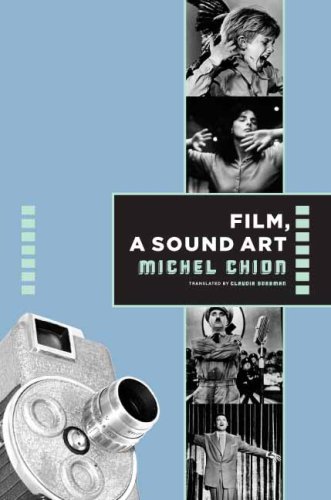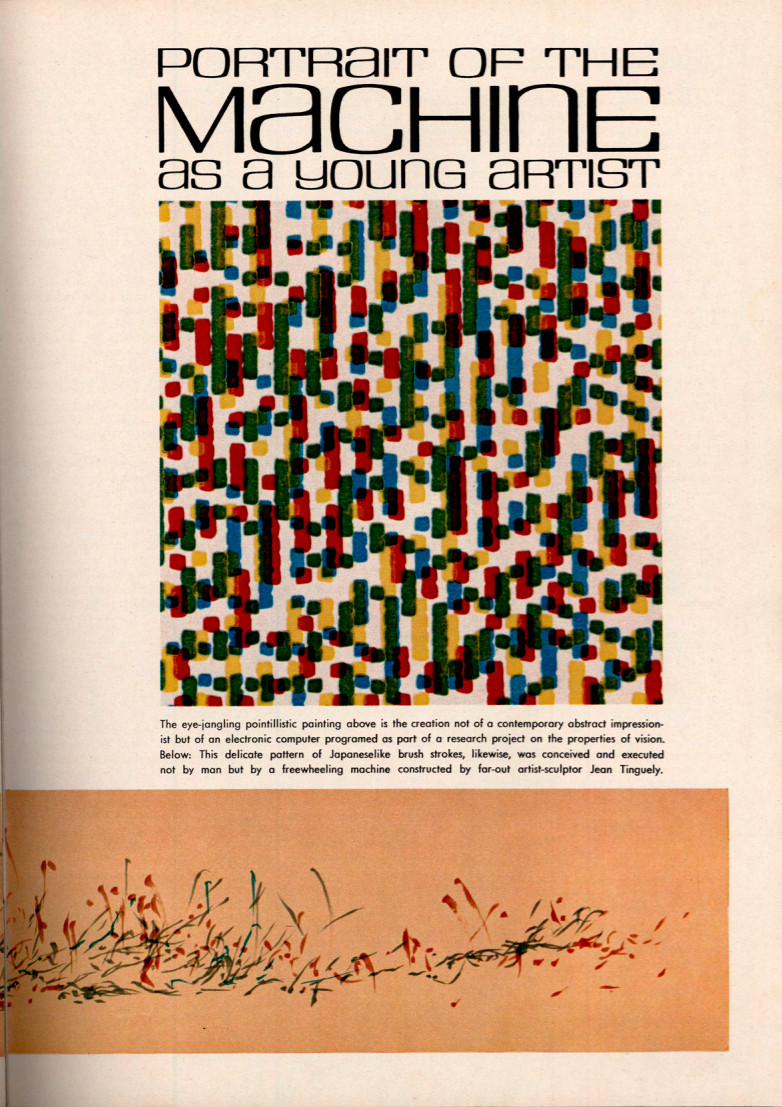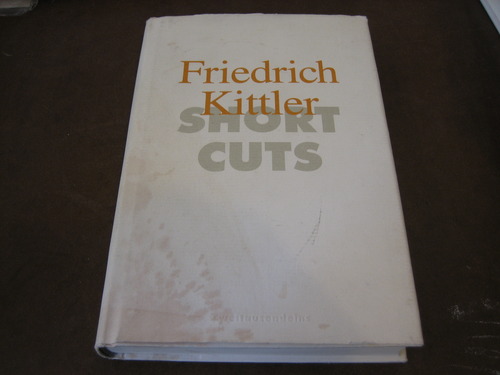Michel Chion: Film, a Sound Art (2003/2009)
Filed under book | Tags: · aesthetics, audiovisual, cinema, film, film history, film sound, film theory, hearing, listening, music, noise, poetics, sound, sound studies, time, voice

“French critic and composer Michel Chion argues that watching movies is more than just a visual exercise—it enacts a process of audio-viewing. The audiovisual makes use of a wealth of tropes, devices, techniques, and effects that convert multiple sensations into image and sound, therefore rendering, instead of reproducing, the world through cinema.
The first half of Film, A Sound Art considers developments in technology, aesthetic trends, and individual artistic style that recast the history of film as the evolution of a truly audiovisual language. The second half explores the intersection of auditory and visual realms. With restless inventiveness, Chion develops a rhetoric that describes the effects of audio-visual combinations, forcing us to rethink sound film. He claims, for example, that the silent era (which he terms “deaf cinema”) did not end with the advent of sound technology but continues to function underneath and within later films. Expanding our appreciation of cinematic experiences ranging from Dolby multitrack in action films and the eerie tricycle of Stanley Kubrick’s The Shining to the way actors from different nations use their voices and words, Film, A Sound Art showcases the vast knowledge and innovative thinking of a major theorist.”
First published as Art sonore, le cinema, 2003
Translated by Claudia Gorbman
Publisher Columbia University Press, 2009
ISBN 0231137761, 9780231137768
536 pages
via johnsonleow
Reviews: Knakkergaard (MedieKultur, 2010), Whittington (Music, Sound, and the Moving Image, 2010), Jaeckle (Quarterly Review of Film and Video, 2011).
PDF (Index missing, 58 MB, no OCR, updated on 2023-3-9)
Comment (1)J. R. Pierce: Portrait of the Machine as a Young Artist (1965)
Filed under essay | Tags: · art, computer art, computer music, computing, film, literature, machine, music

“Mechanistic muses are expanding their domain to encompass every facet of creative activity.”
In this article published in the June 1965 issue of Playboy, Bell Labs engineer, communications satellite pioneer and science fiction writer John R. Pierce introduces the work done in computer music, literature, film, and visual art, and issues an invitation to artists to explore and “school” the computer to yield new paths.
Published in Playboy 12(6), 1965, pp 124-5 & 150 & 182 & 184
via Forum on the Genealogy of MediaThinking (the website contains many scans of essays on media theory and archaeology)
PDF (14 MB)
See also:
Grace Glueck’s criticism of computer art, Portrait of the Artist as a Young Computer, New York Times, 1983.
More writings by Pierce.
Friedrich Kittler: Short Cuts (2002) [German]
Filed under book | Tags: · computing, film, literary theory, literature, machine, media, media theory, military, music, surveillance, technology

A collection of essays and interviews.
Dass er seit eineinhalb Jahrzehnten den Geisteswissenschaften ihren Computer-Analphabetismus vorbuchstabiert, hat Friedrich Kittler vor allen akademischen Ehren den Titel des “Enfant incompatible der Humanities” eingebracht. Aus dem Inhalt: Interviews mit Alexander Kluge, Über Michel Foucault, Computeranalphabetismus, Das Jahrhundert der Landvermesser, Der Kopf schrumpft, Der Schleier des Luftkrieges, Gespräch mit Paul Virilio, Die Zukunft auf Siliziumbasis, Interview mit Peter Weibel, Jeder kennt den CIA, Krieg im Schaltkreis, Medien und Drogen in Pynchons Zweitem Weltkrieg, Memories are made of you, Provisorische Maschinen, provisorische Moral, Rock Musik: Ein Missbrauch von Heeresgerät.
Edited by Peter Gente and Martin Weinmann
Publisher Zweitausendeins, Frankfurt am Main, 2002
Short Cuts series, 6
ISBN 3861504243, 9783861504245
288 pages
Kittler’s bibliography at Monoskop wiki
Comment (1)
